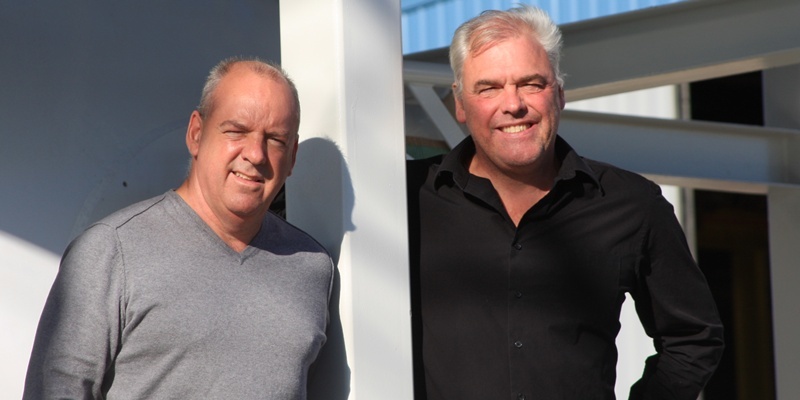Two ex-Dundonians now living and working in Calgary are literally making it big in Canada.
Brothers-in-law Bill Smith and Joe Lyall have just overseen the latest operation of a $55m contract to supply vast vapour recovery units to help clean up gases produced during oil extraction from the oil sands of Alberta.
Extraction of the oil from the sands accounts for about 5% of Canada’s greenhouse gas emissions, making the recovery of hydrocarbon vapours from oil storage tanks an important part of the process.
Bill and Joe’s company HC Piper Manufacturing Inc, set up five years ago after a merger, is one of the major players in the battle to help reduce greenhouse gases produced by Canada’s oil industry, with its products being used in 75% of the wells at the oil sands.
The pair oversaw the journey as two colossal trucks took units from their manufacturing base in Calgary up to Alberta a trip lasting three days and part of their contract to supply seven units to the area. That operation will get bigger as they are in talks to take their project to over $110 million.
HC Piper Manufacturing Inc makes equipment for controlling gases produced during the extraction of bitumen from the oil sands. The four vapour recovery units they have transported to Imperial Oil Ltd’s Kearl oil sands project will be used to trap and encourage the reuse of gases north of Fort McMurray.
Three smaller units will make the same journey at the end of the month, completing phase one of the contract.
Speaking from Canada ahead of contract talks with Imperial over phase two of the project, Joe and Bill talked about a niche but massive environmental market.
”We’re on our way to a meeting with them to discuss phase two, which could be even bigger,” Bill said. ”We’ve moved four of the bigger units and there’s three smaller ones to go up at the end of September.”
Joe said: ”Our business has really taken off. It’s huge over here because the oil sands get a lot of bad publicity. But they’ve really cleaned it up and that’s basically what we do so it’s really pushed our business. We just happened to be in the right place at the right time.”
Joe admitted it was not all down to good luck as the partners Charles Dean, originally from London, Edinburgh man Hamish Ferguson, Bill and Joe spotted the gap in the lucrative market after regulations were tightened up.
Joe said: ”It’s a good working combination. It seems to be working. We got together because although Hamish and Charles are very, very smart and have a lot of expertise in engineering, they didn’t know much about the manufacturing side of things. That’s what we do, so it was a natural thing to do to merge the companies.”
Bill said if they get the contract for phase two, the entire project should be complete by 2013 and would make more than $110 million.
”It’s reflective of the niche of the business we’ve created here,” he said. ”Our Garo pump is unique. There’s no other company based in Western Canada that has that pump, so we’re quite fortunate.”
The company was formed in 2006 when Bill and Joe’s former firm Piper Fabrication (2003) Ltd, which was an established metal fabrication company, merged with HC Process Systems, founded in 1999 by engineers Hamish and Charles.
Bill (55), who went to Kirkton High School, used to work at the Caledon shipyard. He emigrated in the 1980s. Former St John’s High School pupil Joe (49) did his apprenticeship with Stobswell firm Jaydee Heating. He followed Bill to Canada during the 1990s after working offshore.
Despite leaving the city, the men still regard it fondly and return when they can. Bill was back visiting relatives last year, while Joe was home as recently as May.
Joe said: ”Both my brother-in-law and myself are proud of our origins. Dundee was a source of education and apprenticeship for us both.
”John Dean, who owned Jaydee back then, gave me my apprenticeship. He was very knowledgeable and taught me everything about the business.”
HC Piper Manufacturing, which employs 85 people, can simultaneously produce eight units per year, with each selling for about $4 million on average.
A vapour recovery unit draws off low-pressure vapour that gets increasingly compressed inside an oil storage tank as the tank is filled with oil.
The operation to transport the units to Alberta, though tricky, was said by Bill and Joe to be easier than the complicated task faced by Imperial themselves as they attempted to transport its South Korean-built modules for the Kearl project through America from Idaho to Alberta, falling foul of environmental groups and red tape.
